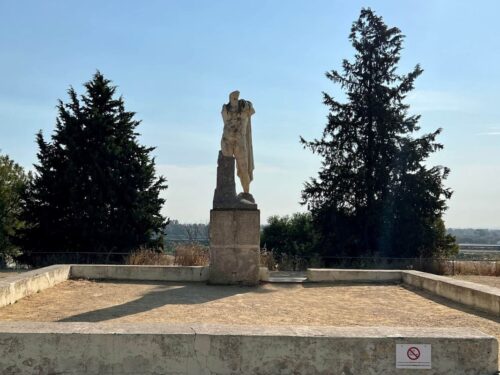
Spain is famous among students because it offers the perfect blend of adventure and career opportunities. In fact, Spanish universities are home to over 200,000 international students.
According to Studying in Spain, Spain offers some of the best programs in Europe, which conveniently lead to high-paying careers. So, it’s no wonder that when matched with popular tourist attractions, tranquil beaches, and warm weather — Spain becomes an ideal travel destination for students.

The only challenge is, well, getting the best of both worlds — balancing travel and studies in Spain.
First, is it possible to balance both?
Most students who go abroad are worried about balancing study and exploration.
Truth be told, everything is exciting in Spain, and it can be easy to fall behind at university by spending too much time exploring and traveling around.
But is it possible to balance both? To answer the question, yes, it is possible — students have done it before and continue to do it to this day. But you need to think smart from the very beginning.
From finding a program that suits your needs (i.e., has a flexible schedule) and organizing your courseload so you do not take on more than you can handle to going through the little details like planning your travels and using effective study habits, these are all things you must consider.
To ensure you will make the most of your time during your time studying in Spain, I prepared a list of tips to keep in mind — so you can stay on top of your studies and enjoy the splendor Spanish cities offer.
Go through these five helpful tips gathered from experience of studying in Spain
1. Choose a program that suits your needs
Choosing the right program is one of the most important elements!
There are 276 higher education institutions in Spain that offer over 3,600 study programs, meaning it won’t be hard to find one that suits your schedule and academic needs. You can easily explore and find your match on Erudera.
Choosing a study program that suits your needs is the number one tip when balancing study and travel in Spain, simply because your program is the basis for everything. It’s why you’re in Spain in the first place and what makes your exploration possible.
So, if all is well with the program, you’ll have no problem adjusting to everything else.

2. Plan your travels in advance
Planning allows you to divide your time effectively between traveling and studying in Spain. By creating a schedule and organizing your tasks, you can ensure you have dedicated study time while still leaving room for exploration and travel adventures.
For example, your daily plan can look something like this:
- Morning: Attend my classes, a lecture on Spanish history, and a language conversation class.
- Afternoon: Head to the library on campus to study for the upcoming exam. Focus on reviewing key concepts, taking detailed notes, and creating flashcards.
- Evening: Take a break and explore the charming streets of the Gothic Quarter. Visit La Sagrada Familia. Try traditional Spanish tapas.

3. Develop effective study habits
Developing good study habits helps you manage your time efficiently.
By establishing a routine and sticking to a study schedule, you can stay on top of your coursework and still have time for travel and exploration.
Imagine sitting down to study and wasting time doing anything other than studying, i.e., endless scrolling on social media, watching television, or simply staring at a wall. What you have done is wasted the hours you have dedicated to studying, and you have neither studied nor traveled.
As a result, you’ll have to cancel your trip to the Plaza de España because you aren’t prepared for classes.
Not the best scenario, huh? Well, it’s hypothetical, meaning you can easily avoid this.
4. Embrace spontaneity when opportunities arise
While planning will help you organize your time and stay stress-free, you should also embrace spontaneity when opportunities arise.
Make sure you remain adaptable and willing to explore new destinations, even if they were not initially on your itinerary. These opportunities do not come every day!
5. Use weekends and free time
When balancing study and travel, making the most of weekends and free time is crucial.
Weekends and pockets of free time provide valuable opportunities to explore new destinations. Whether it’s taking day trips to nearby attractions or planning longer excursions, using weekends and free time allows you to immerse yourself in the local culture, visit iconic landmarks, and create memories.
Of course, this is the most efficient when you plan your travels in advance by taking into account your study workload.

6. Create a must-visit list
Knowing the places you want to visit will help you stay organized and, this way, make balancing study and travel easier.
Spain has a lot of tourist attractions, 49 Properties inscribed on the UNESCO World Heritage List, delicious cuisine, Mediterranean beaches, popular festivals (such as La Tomatina), and unique culture, including the world-famous dance of Flamenco, which is a sight for sore eyes.
Here are some Spanish destinations you must include in your list, regardless of where your university town is:
- La Sagrada Familia (Barcelona): You’ll love the intricate details and architecture of Antoni Gaudí’s unfinished masterpiece, a true icon of Barcelona.
- Alhambra (Granada): Visit this old fortress and enjoy the enchanting world of Moorish splendor as you explore the palaces and stunning gardens of the Alhambra.
- Plaza de España (Seville): Admire the most famous square in Seville, adorned with beautiful ceramic tiles, a fountain, and a canal with charming rowboats.
- Royal Palace of Madrid (Madrid): Now only used for state ceremonies, the Royal Palace of Madrid is the largest royal residence in Western Europe, which spreads across 135,000 square meters and has 3,418 rooms.
- Platja de Ses Illetes (Formentera): A beautiful beach with unparalleled natural beauty, especially enchanting due to its pristine turquoise waters and white sand.
This is just a short list of the countless places you can visit in Spain.
Note: Create a list of places you would really like to visit, depending on where you are in Spain, and check each box one by one. This is way more helpful than not having a plan at all.
Bonus: Study ‘on the road’
Who says you only have to study at your campus library? You can always take your books/laptop with you during your travels if the coursework is lighter and you think you can manage.
Try to make the most of travel time, such as long flights, train rides, or bus journeys, by utilizing them for studying. Review lecture notes, read textbooks, or listen to educational podcasts to optimize your study time.
You can use technology, such as note-taking apps, study planner apps, or digital flashcards, to review important concepts and stay organized while on the go.
Check out our guide to remote working in Europe for more tips!

Here are some places to seek out in Spain where you can combine study and travel:
- Libraries: Look for libraries such as the National Library of Spain in Madrid or the Central Library of Catalonia in Barcelona.
- Parks and Gardens: Find outdoor spaces like the Retiro Park in Madrid or the Park of the Citadel in Barcelona. With benches, shaded areas, and peaceful surroundings, parks are ideal for studying in Spain.
- Coffee Shops: Look for places with comfortable seating and a quiet atmosphere, like Toma Café in Madrid, where you can enjoy a cup of coffee or tea while studying.
- Co-working Spaces: Explore co-working spaces such as Talent Garden Madrid or MOB Barcelona for quiet areas, reliable Wi-Fi, and a productive environment for studying.
The great thing about this is that by visiting such spaces during your travels in Spain, you will step away from the tourist crowds and get a sense of the local culture in each new city you visit.
Make the most of studying in Spain
By planning ahead, organizing your time effectively, and allowing space for spontaneity, you can excel academically while immersing yourself in Spain’s vibrant culture and rich history.
Choosing a suitable study program, utilizing your weekends, and developing effective study habits will give you a fulfilling and well-rounded experience.
Make sure you make the most out of it!









